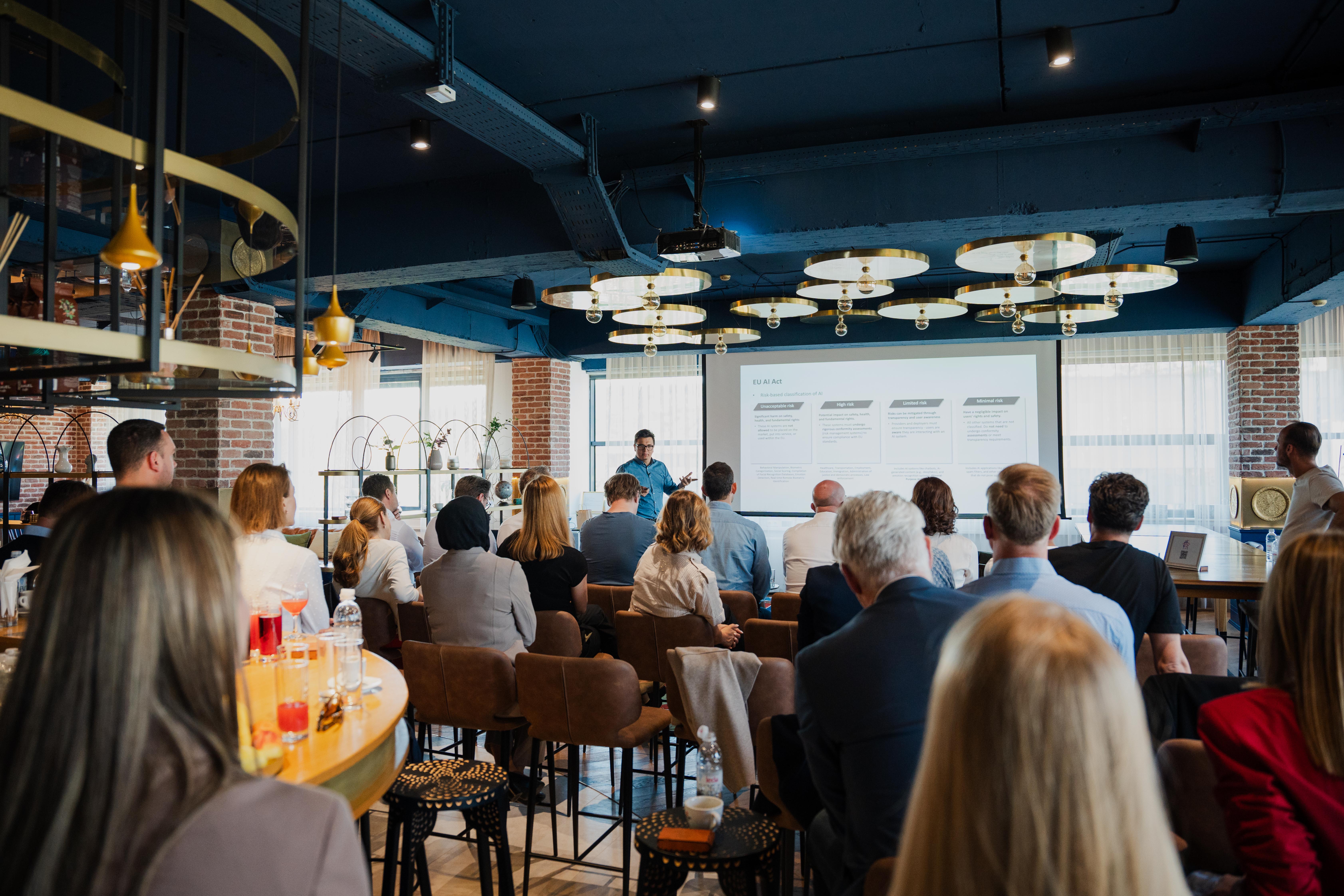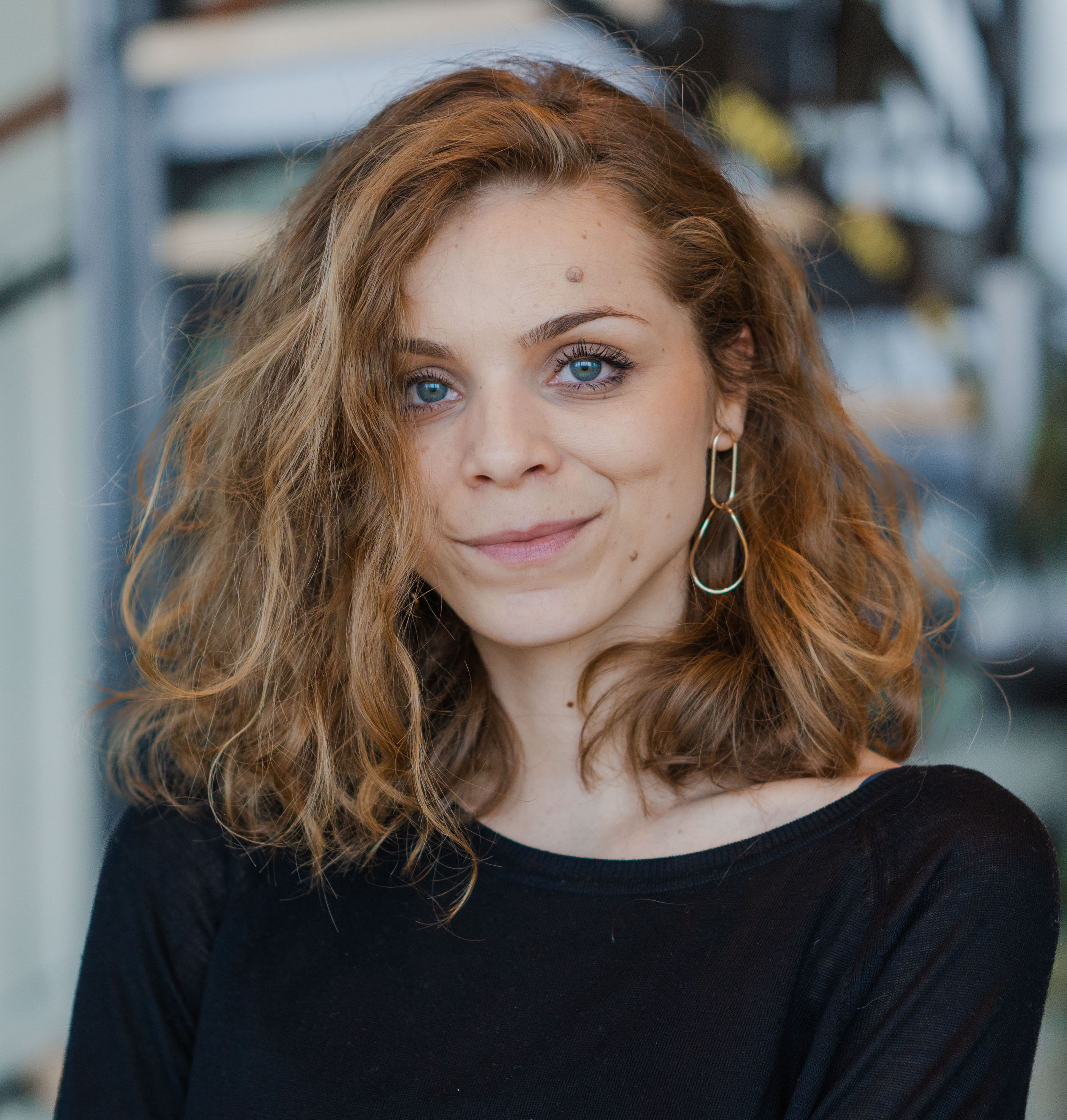
With over 50 participants from across our partner network, clients, and collaborators, the two-day event provided a rare opportunity to step back from the pace of delivery and ask bigger, bolder questions. What is the role of QA as AI becomes central to software development? How do we stay ethical and strategic in the face of rapid automation? And how can we co-create solutions that are both innovative and grounded?
The summit opened with a look into the evolving QA field, which is not all about bug-finding anymore. Alisa Hrustić and Adha Hrusto from System Verification shared their perspective on how the role of QA is fundamentally shifting, fueled by the rise of generative AI and machine learning. Their presentation touched upon two crucial angles: how AI is transforming QA itself, and how QA methodologies are adapting to test AI systems. They highlighted the growing set of tools reshaping our workflows, from defect prediction and AI-generated test cases to synthetic data and self-healing test scripts.
They also explored the challenges of assuring quality in non-deterministic, continuously learning systems, emphasizing the need for a new QA mindset — one that positions engineers not just as executors, but as explorers in an AI-driven world. Alongside this conceptual shift, they presented System Verification’s latest GenAI QA solutions, including full API testing workflows powered by AI, designed to increase test coverage, reduce costs, and accelerate releases with greater confidence.
“Our goal was to highlight where we are as QA engineers today and where we’re heading,” said Alisa Hrustić. “AI is already redefining the QA process — not just how we test, but what skills we need to grow. With strategic innovation and smarter tooling, we can elevate testing into a proactive force in software development.”
Adha Hrusto expanded on this by emphasizing the broader shift in the role of QA:
“The future of QA demands that we move beyond the comfort zone of traditional testing,” said Adha Hrusto. “This evolution is powered by AI, which transforms QA into a proactive, data-driven discipline allowing QA engineers to anticipate risks, optimize test strategies, and drive faster, higher-quality releases.”

Throughout the summit, participants were encouraged to think strategically, not just technically. Henrik Sällman and Peter Anderberg from Reeinvent illustrated the importance of collaboration beyond company walls, showing how ecosystem thinking can bring ideas to life at scale. In today’s fast-moving world, where innovation often moves faster than plans can keep up, building the right partnerships gives you a real competitive edge.
But as the conversation turned toward AI, the question of responsibility came into focus. In an insightful session on AI and safety, Dr. Amer Kajmaković of Pro2Future explored what it means to build ethical and trustworthy AI systems. Through examples of high-profile failures and near-misses, he made the case for deeply embedding safety principles into every stage of AI development.
“The QA Summit in Sarajevo showcased how AI is becoming a transformative force in business and innovation, particularly within the quality assurance sector,” Amer shared. “Yet with that power comes responsibility—ethical principles like safety, security, and privacy must be deeply embedded in every stage of AI development and deployment.”

He went on to explain how regulatory frameworks such as the EU AI Act, while often seen as restrictive, actually serve to protect long-term innovation and trust.
“Frameworks like the EU AI Act, while they may seem cumbersome in the short term, ultimately safeguard citizens and help build long-term trust in AI technologies. The summit brought together experienced industry practitioners who shared valuable insights and perspectives on how the EU can successfully stay competitive in the global AI race.”
One of the highlights of the summit was a panel discussion titled "AI in Europe: Marathon While the World Runs a Sprint?", moderated by Henrik Leijon, AI Lead at System Verification. The panel brought together Hamdija Jusufagić (Codescene), Hans Troiza (Alfa Laval), Mikael Persson (Sigma Connectivity), and Vildan Hasanbegović (Automotive Transformation). Together, they shared their perspectives on Europe’s role in the global AI race, questioning whether the EU’s emphasis on regulation and ethics is holding back innovation or positioning it for sustainable leadership. While views varied, the discussion emphasized the need for strategic collaboration, smart policy, and long-term thinking grounded in European values.
The summit also made space for hands-on learning. In a workshop led by Armin Zebić and Nedim Korjenić, attendees explored how performance testing can move beyond basic load checks and become a vital part of business and product strategy, helping teams ensure reliability, scalability, and user satisfaction before issues arise. Real-world scenarios, data points, and tool comparisons helped connect testing practices to business value.
Meanwhile, Miljenko Baković, CEO of Reeinvent Croatia, presented how AI-driven prototyping tools are already changing the development process — empowering teams to build smarter and iterate faster. Rather than talking about what AI might do someday, the focus was on what’s already working today, and how to scale it safely.
Beyond the agenda, the most important part of the summit may have been the conversations in between — over coffee, lunch, and evening walks through Sarajevo’s Old Town. The setting offered the perfect backdrop for openness and exchange.
The SYVE QA Summit was never about showcasing finished solutions. It was about starting the right conversations — ones that don’t end when the event does. As AI continues to evolve and reshape our field, we know one thing for sure: the future of quality will be shaped not only by technology but by people who ask the right questions and work together to answer them.
We are grateful to everyone who joined us, contributed, challenged ideas, and strengthened this growing community. And while this was our first summit, it certainly will not be the last.
Let’s continue shaping the future of quality — together.






